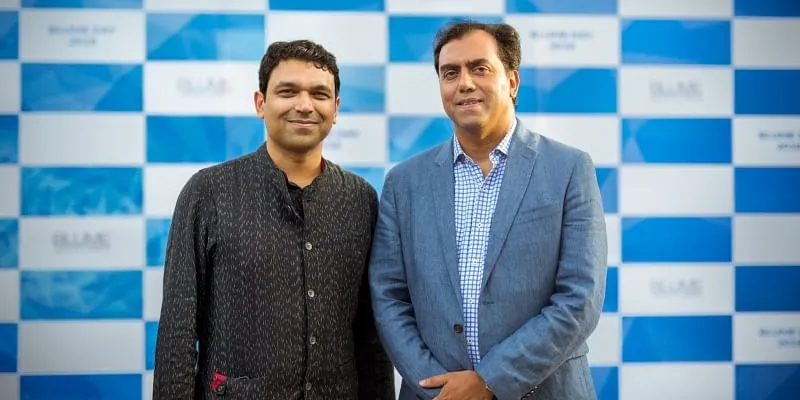The week that was: how bike rental company Vogo tapped IoT and India’s growing appetite for cloud kitchens
This week, we focus on bike rental company Vogo’s technological journey, the growing popularity of cloud kitchens, how fintech startup Financepeer is impacting schoolchildren, and the evolution of Blume Ventures.
Bike rental startups across India hit a roadblock amid the coronavirus pandemic. Now, as the country unlocks, people are looking for a safe way to commute. Bengaluru-based bike rental startup Vogo aims to tap this market – in hibernation till for the last couple of months – by using technology.
The focus on technology has helped Vogo, which lets you pick up a scooter from anywhere and drop it off once you’ve reached your destination, make a mark in the crowded market.
Anand Ayyadurai, Co-founder and CEO, Vogo, says: “From the very early days, we invested heavily in building IoT technology for our scooters. This serves a twin purpose – it makes the entire booking process automated, enables faster scale, and allows us to remotely monitor and control the scooter, ensuring the security of the asset.”
From mobility, we now move on to the rise of cloud kitchens.
Restaurants and eateries are beginning to hit the panic button as the coronavirus pandemic continues to eat into their business. Diners have shown a propensity for takeaway options, leading to a shift towards cloud kitchens, cooking facilities that cater only to online delivery orders and that have no physical dining space.
RedSeer Management Consulting, in a recent report, said cloud kitchens were set to become a $2 billion industry in India by 2024, up from $400 million in 2019. In fact, it called cloud kitchens the “secret sauce to survive in the post-COVID restaurant market.”
Everyone wants a bigger cheque today. With the evolution of VC investing, the explosion of India’s mobile-led digital economy, and second-time founders in the ecosystem, round sizes have gone up.
Blume Ventures started in 2010 to bridge the gap between small angel investors and giant VCs. In the last decade, it has backed hordes of startups that have become household names, mirroring the growth of India’s digital economy.
Blume Ventures, which completed a decade in July, turned to LPs and international investors for Fund III, and also closed a $41 million Opportunity Fund to further invest in its successful bets (mostly growth-stage startups). “LPs back you when they know that you can become a story of [many] successes,” Sanjay Nath, Co-founder and Managing Partner of Blume Ventures, tells YourStory.

Sanjay with Karthik (L).
Blume bridged the fundamental gap between the two by thinking like an early-stage angel investor — sometimes backing even idea-stage startups — but approaching the association like an institutional VC. They followed up the funding with continuous mentoring, and services like hiring, business development, go-to-market, and so on.
We now focus on a fintech company that’s making an impact in the educational field by taking education to the masses. This is where Financepeer comes in. Founded by Rohit Gajbhiye, Naveesh Reddy, DebiPrasad Baral, and Sunit Gajbhiye in 2017, the Mumbai-based startup provides zero-cost EMI-based school fee financing options to parents.
The Google Launchpad-incubated startup so far claims to have impacted nine lakh children across 2,000 schools, in 50-plus Indian cities. The startup received angel funding of Rs 5 crore in September 2019 and claims to be working to remove economic disparity in the field of education.
(Edited by Teja Lele Desai)







